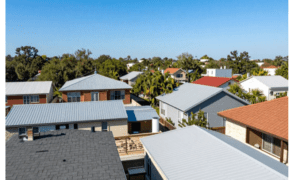The need for clean energy is inevitable in the modern times as it instrumentally facilitates sustainability both to the current and future generations. There are numerous sources of clean and renewable energy sources such as hydroelectric power, nuclear, wind, biogas and solar among others. Solar energy, however, is more reliable and cheap to install and maintain than the rest in the list making it the most preferred and dominant.
Solar energy is usually tapped via the use of the Photovoltaic (PV) solar systems. To enhance energy efficiency in homes where the systems are used, a range of factors, therefore, have to be taken into consideration. These factors ensure optimum performance of the solar systems once they have been mounted and put to use. The factors are as listed in this reading
1. Location of the house and inclination of the roof
For solar panels to optimally perform they need an area receiving adequate solar radiations as that they work well in areas with wide sunlight coverage. Locations which receive average annual sunlight distribution offers more leverage to solar users, they don’t have to rely on the main grid for their power supply if they installed adequate and efficient solar equipment. Anyone intending to install solar systems should observe that the sunlight distribution is adequate or consider using powerful, or more systems to cater for inefficiency in the solar radiation.
Qualified solar installing companies and technicians ensure that there are no obstructions in the installation areas to increase reception of solar radiation by the systems. The surface of installation should also be well inclined to enhance a good angle of interaction between the sun rays and the system surface. That is why the rooftops should have the desired inclination for optimum operation of the PV solar systems.
2. The energy requirement of the property/home
Solar energy can meet all the energy requirement of a home should the owner want to go off-grid. This is possible is powerful PV solar systems are adequately configured to meet all the power demands of the property. A home or a property owner can as well decide to use solar energy to complement the supply from the main grid. The energy requirement of a home plays a key role in influencing the type of the PV installation depending on whether the property is to be partially or totally disconnected from the main grid. Going off the grid would mean that more and powerful solar systems need to be mounted to meet all the power demands. Using powerful equipment is, however, also recommended even if solar energy is intended as an alternative source of electricity.
3. The contracting company
Picking on an accredited solar company has a myriad of advantages. Suppliers dealing with quality equipment will probably provide warranties and at least regular servicing and maintenance of the systems. They can provide longer warranty periods some as long as 10years. Besides, they have the capacity to implement an expert installation of the systems. It is vital to research the best companies for the contract, a reference by a previous client is can be of more help.
The energy needed also determine the types of the solar systems that can adequately meet the power demands of a home. There are several types of solar systems depending on the manufacturing company which designs them in different sizes and capacities of performance. There are companies that produce quality solar systems that are efficient with optimal performance to effectively supply the power required. Accredited solar companies use the latest technologies in production and installations. They have qualified personnel who oversee the entire installation process and verify its effectiveness.
Authorized companies will also advise regarding the installation permits. They will evaluate if the property meets the standards for mounting of the solar systems. This is instrumental in curbing the possibility of rubbing shoulders with the authorities and getting fined when the equipment is already in use.
4. The durability of the solar systems
The photovoltaic systems do have life spans during which they have optimal performance. When shopping for the systems before their installation it is vital to observe their lifespan so that they can last for many years. Contracting licensed companies for supply and installation has more leverage since they provide quality equipment with longer warranty showing that the solar systems have a longer lifetime to serve their purpose. Surface evaluation of the systems without taking specification details of manufacture can be disastrous, it can lead mounting of poor quality equipment that can be defective in the long run yet volumes of resources might have been pumped into acquiring them.
5. The expected length of the project
Depending on the energy requirement of the property the length of installation can also vary. More energy requirement implies that more equipment will be mounted. Certainly, it will require longer periods for the installation to be completed. Low energy requirement points towards shorter installation period. If one wishes to oversee the whole installation process they, therefore, have to delegate their time depending on the project needs. The installation period can run from few days to weeks and even months depending on the magnitude of the work. Established companies with large workforce can accomplish the process in few days thus reducing the cost of operation.
6. The cost of installation
It is appropriate that one understands the cost of installation upon deciding to integrate the solar systems to their homes. Due to the fascination towards the use of clean energy and the global support towards the initiative, the cost of solar installation, however, has considerably gone down. Bear in mind that you also have the option to lease instead of buying. Check out the differences in leasing vs buying solar panels. Most governments have implemented rebates and tax cuts to encourage more people to adopt the use of clean energy. It is a wide step towards achieving a sustainable environment for communities today and in future. Once the rebates and the tax cuts have been taken into consideration, one needs to confirm that the finances set for the project are adequate for it not stall in the process when the installation has begun.
In a nutshell, solar technology is instrumental for a range of reasons. It is cheap thus eliminates chances of remitting regular power bills. It also comes with low maintenance and installation costs owing to government rebates and tax cuts. Solar will forever be environmentally friendly since it does not produce hazardous environmental emissions. It does not have power surges that can cause damage to homes as noted with other sources of energy. Importantly, emphasizing the highlighted factors enhance efficiency and optimum performance of the systems upon installation.
Read the Guide for Outdoor Solar Lights on: The SolarAdvantage.net



































